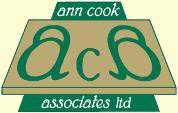Assessor Award (previously A1)
Introduction
In January 2011 new assessor qualifications replaced A1.
A combination of three units (C&G Units 301, 302 and 303) provide flexibility for individuals to develop and achieve four different qualifications.
Selecting the right qualification
Level 3 Award in Understanding the Principles and Practices of Assessment
C&G Unit 301: A knowledge-only unit for people who would like to know about assessment practice e.g. potential Assessors or managers, HR or quality assurance personnel.
Level 3 Award in Assessing Competence in the Work Environment
C&G Units 301 and 302: for people who assess competence in the workplace using a variety of methods including Recognition of Prior Learning (RPL), direct observation, examination of product, discussion and/or questioning, use of others e.g. witnesses
Level 3 Award in Assessing Vocationally Related Achievement
C&G Units 301 and 303: for those who assess vocational training using methods including simulation, projects, skills tests, assignments, oral and written questions, RPL.
Level 3 Certificate in Assessing Vocational Achievement
C&G Units 301, 302 and 303: for people who assess both training, and competency in the workplace.
For those qualifications with more than one unit, following training, assessment will be undertaken ‘holistically’, which means that evidence of ‘doing the job’ (302 and/or 303) will also contribute towards the knowledge unit (301).
These Awards are relevant for-
- Accredited Centres wishing to have more qualified Assessors
- Organisations working to become Accredited Assessment Centres
- Highly Experienced Craftsmen wishing to alter their career path and train to become an Assessor of their Craft
- Large to medium-sized Construction Employers who wish to work proactively with Centres who are taking their employees through qualifications (Levels 2 to 5) towards their CSCS cards, by having appropriate staff trained as Assessors
Outcome
Our programmes are structured to -
- Assist an informed decision on which qualification is most appropriate
- Deliver formal training
- Allow time for the implementation and practice of these new skills before undertaking assessment, if required
- Advise the Centre / Employer on how to support and develop the Candidate-Assessor, and assist in the provision of evidence for the qualification
- Assess the Candidate-Assessor; providing advice and guidance on how to meet the requirements of the qualification
- Be delivered nationally and 'in house', according to demand
Further Information
If you would like to receive further information about our programmes for these qualifications, or to discuss it further with Ann Cook, please contact us.


